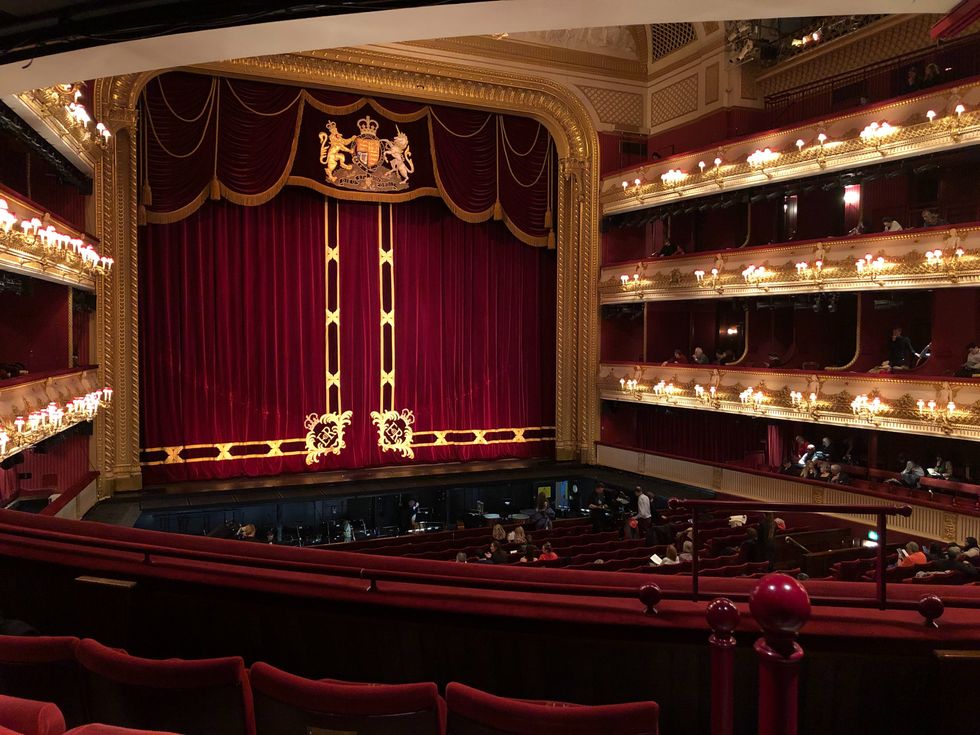Recently, I watched Richard Wagner's opera Das Rheingold from the Metropolitan Opera. While watching, I wrote down some notes to describe the feeling I had as a viewer. Wagner is known for his revolutionary ideas incorporated into his operas, and knowing that, I watched the opera looking out for elements of his ideas.
The beginning of the opera was very calm and slow, with brass instruments carrying the low melody of the composition. It gives the feeling that something is imminent. The arpeggios of the stringed instruments that enter allude to the movement of water, gently oscillating in waves. The visuals are a serene deep blue with the light moving from left to right. Slowly, the music becomes more forte as swimming mermaids are revealed. It is clear that the stage has become an ocean. The lyrics feature dialogue among the three rhinemaidens. This perfectly captures Wagner's idea of combining all forms of art. Rhinemaidens are creatures that originated from Norse mythology and are also included in Greek mythology, and they appeared first, setting up the stage. Their appearance in the opera aligns with another one of Wagner's ideas. Wagner draws from myth as the base of his stories, as they contain parables about the human condition. I think this is a beautiful opening to the opera as it sets the stage and introduces Alberich, a man who is infatuated by the mermaids. He attempts to catch up to them, but they continue to tease him. They find him ugly and continue to play with his emotions. Angry that they torment him, he steals their gold and curses love. He then forges a ring that will make him the most powerful in the world, overcome by lust for power and renouncing love.
The following scene is a dialogue between husband Wotan and wife Fricka, two of them going back and forth, talking about Wotan's dangerous desire for power. It is revealed that Wotan promised to give Freia, Fricka's sister, to two giants so that they would build him a fortress. Freia later comes in asking for help, as she does not want to be given away. She cries for help to her brothers, while Fricka exclaims that all the men have betrayed Freia and now they hide cowardly. The music played in this scene features grand brass and string instruments, especially when the giants arrive and show the completed fortress. It emphasizes the giants' immense power above the others. When the giants are about to take Freia, the stringed instruments begin to play faster, adding to the tension of the scene. After Freia's brothers come to save her, Loge, the god of fire, enters and says that they can retrieve the ring that Alberich forged from the rhinemaidens' gold as an alternative payment to the giants. The colors of the sky in this scene are warmer colors as opposed to the beginning's calm blue oceans. The oranges and reds signify tension. The music during Loge's monologue sounds triumphant, almost portraying him as a savior and instilling hope into the characters and the audience for Féria's fate. Here, another one of Wagner's ideas are demonstrated: Wagner's operas connect the characters with the audience through the art of acting and music. The audience feels sympathy for Freia, and when Loge suggests another way to pay back the giants, the audience feels hopeful. Music supplements these feelings in the audience.
These are the first two scenes of the Das Rheingold, and I recommend that if you are interested in the rest of the story, you should watch the opera!
















